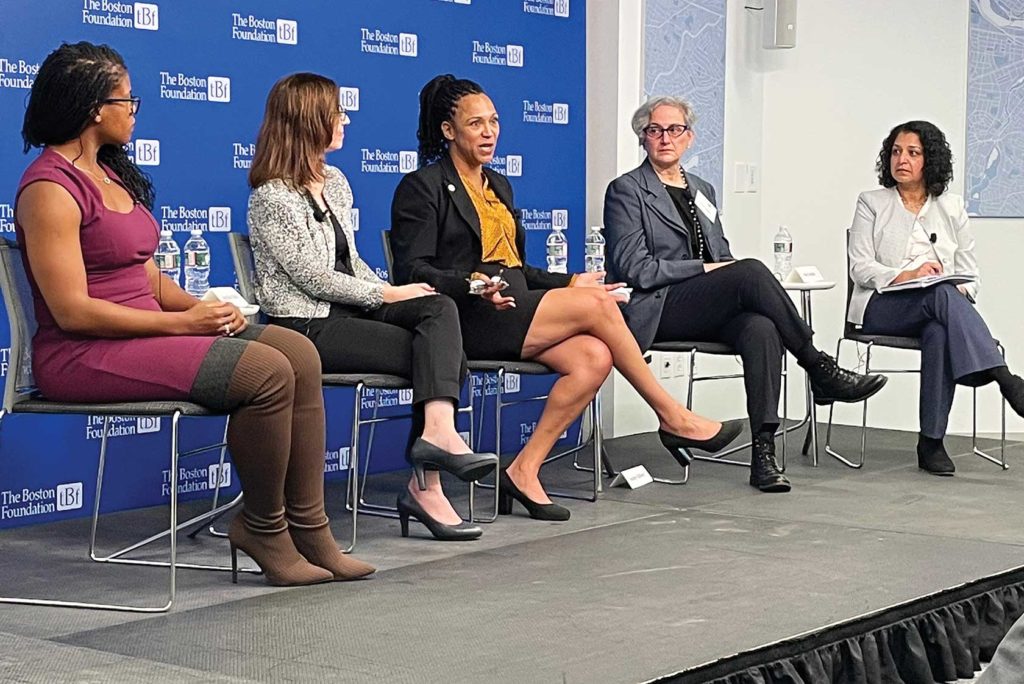Report finds unequal access in local affordable housing
Housing advocates call for greater state oversight

Within the city of Boston, competition for affordable housing units is fierce, with long waiting lists for the 20% of units in the city that are designated affordable for people with incomes ranging from $0 to 120% of the federally designated area median income, which is currently $98,150.
But step outside city limits and it can be next to impossible to find affordable housing, according to the 2022 Greater Boston Housing Report Card released last week by The Boston Foundation.
With challenges including preferences for local residents, units too small to accommodate families, age restrictions and entrenched patterns of discrimination against people of color, Boston area residents face stiff headwinds when seeking affordable units in the Greater Boston area.
But the biggest impediment may be low production. Outside of Boston, communities are not building enough market-rate or affordable housing to help moderate prices or even to meet demand.
During a forum last week on the new report, Boston Foundation President Lee Pelton said the Greater Boston area would receive a failing grade on both housing production and racial equity, with many communities turning a blind eye to what amounts to a housing crisis.
“In my view it is the single most important issue in our city and the surrounding communities,” Pelton said, making the case for greater production of affordable and transit-oriented housing.
While the city of Boston has permitted new units at a rapid pace, high demand for housing in the city still has kept rents high. Boston now has the lowest level of rental vacancies among major U.S. cities, according to Luc Schuster, who heads The Boston Foundation’s Boston Indicators project.
“We are a region that has a lot going for ourselves,” Schuster said. “We have a relatively healthy economy. People want to live and work here. And that’s a very good thing. But we’ve paired that with very low levels of housing construction.”
On the topic of inequalities in affordable housing, the report paints a picture of deep resistance to change in many Greater Boston communities, with some producing way fewer units than others.
Newton, for example, has a population of just under 89,000 residents as of the 2020 census. It has just 1,300 affordable units — 4% of its total housing stock. Cambridge, a city with similar population size, 117,000, and income demographics, has more than 6,300 units — 12% of its housing stock. Other communities in Greater Boston had affordable housing stock that ranges between 2% and 8% of total units.
Additionally, many suburban towns use age restrictions, local resident preferences and biases toward one-bedroom units to limit who can access housing in their communities. Public housing authorities in communities outside Boston do not market affordable units widely, the report found, often leaving available units unfilled. And state officials do not collect or track data on such units, making it difficult for people looking for subsidized units to find such units.
Adding to the difficulty many families face when seeking apartments, realtors, lease managers and landlords have been shown in studies conducted by The Boston Foundation and Suffolk University to engage in rampant discrimination against people of color.
The Boston Foundation report recommends centralized management of subsidized housing, including a central database, a centralized rental application system and a state-level chief of housing data to monitor cities’ and towns’ production and management of subsidized housing. It also calls for better monitoring of towns’ compliance with and enforcement of fair housing laws.
During a panel discussion, state Sen. Lydia Edwards said the report could have gone farther in revealing the discrimination she said is rampant in local housing markets.
“There’s not enough emphasis on the embedded and systemic racism in our housing policy,” she said. “We are here because of racist policies. We are here because of redlining. We are here because suburbs have developed to the exclusion of people of color — on purpose.”
Edwards said affordable housing must be planned with racial integration as a key priority.
“There’s a lack of prioritization for this,” she said.
Jennifer Raitt, who heads the Northern Middlesex Council of Governments, agreed with Edwards that racial integration should be a top priority for affordable housing production.
“We have to address structural racism,” she said. “Housing is the core way in which we address that issue. And I think that government plays a key role in housing justice.”
While the report advocates ending local resident preferences for affordable units, Edwards cautioned that such a move could, in some places, work against maintaining existing diverse communities.
“The displacement crisis in East Boston has been only really felt by the Latino population,” she said. “If I could prioritize keeping some of them in the community, then I would want a local preference.”






